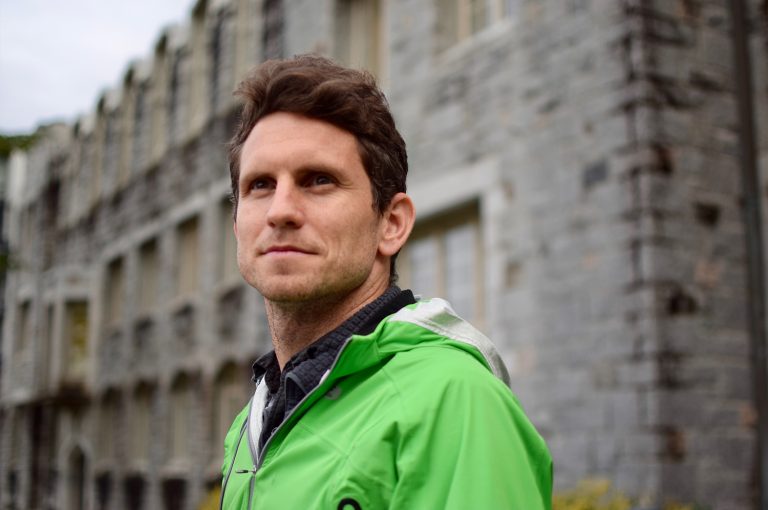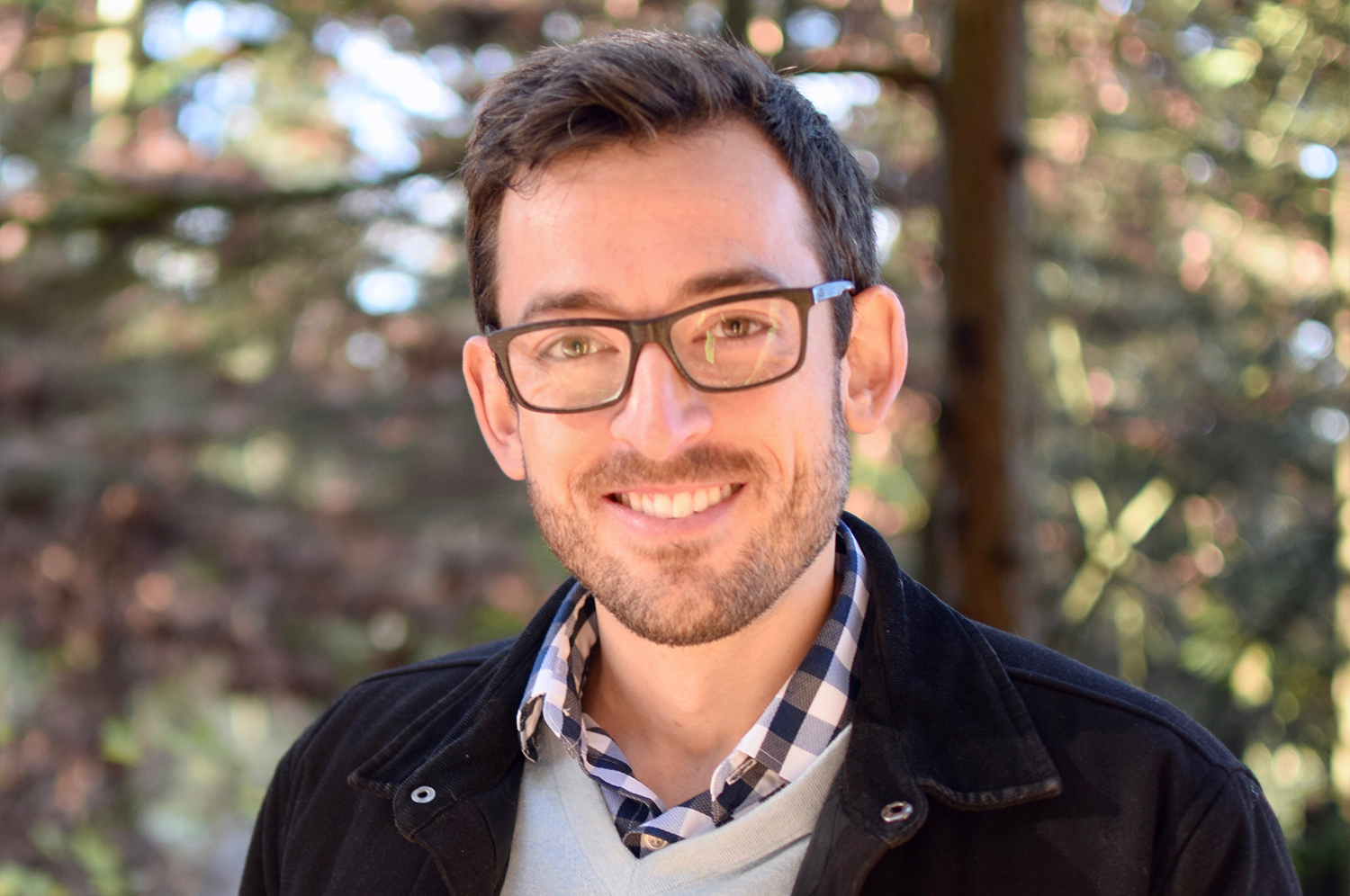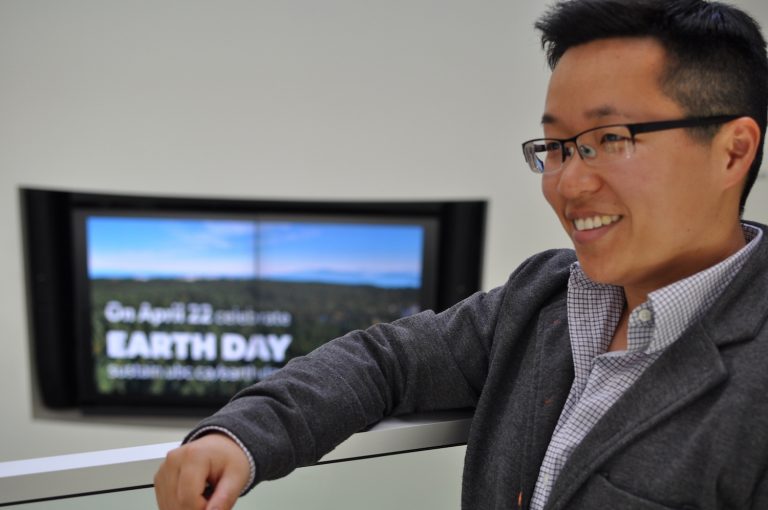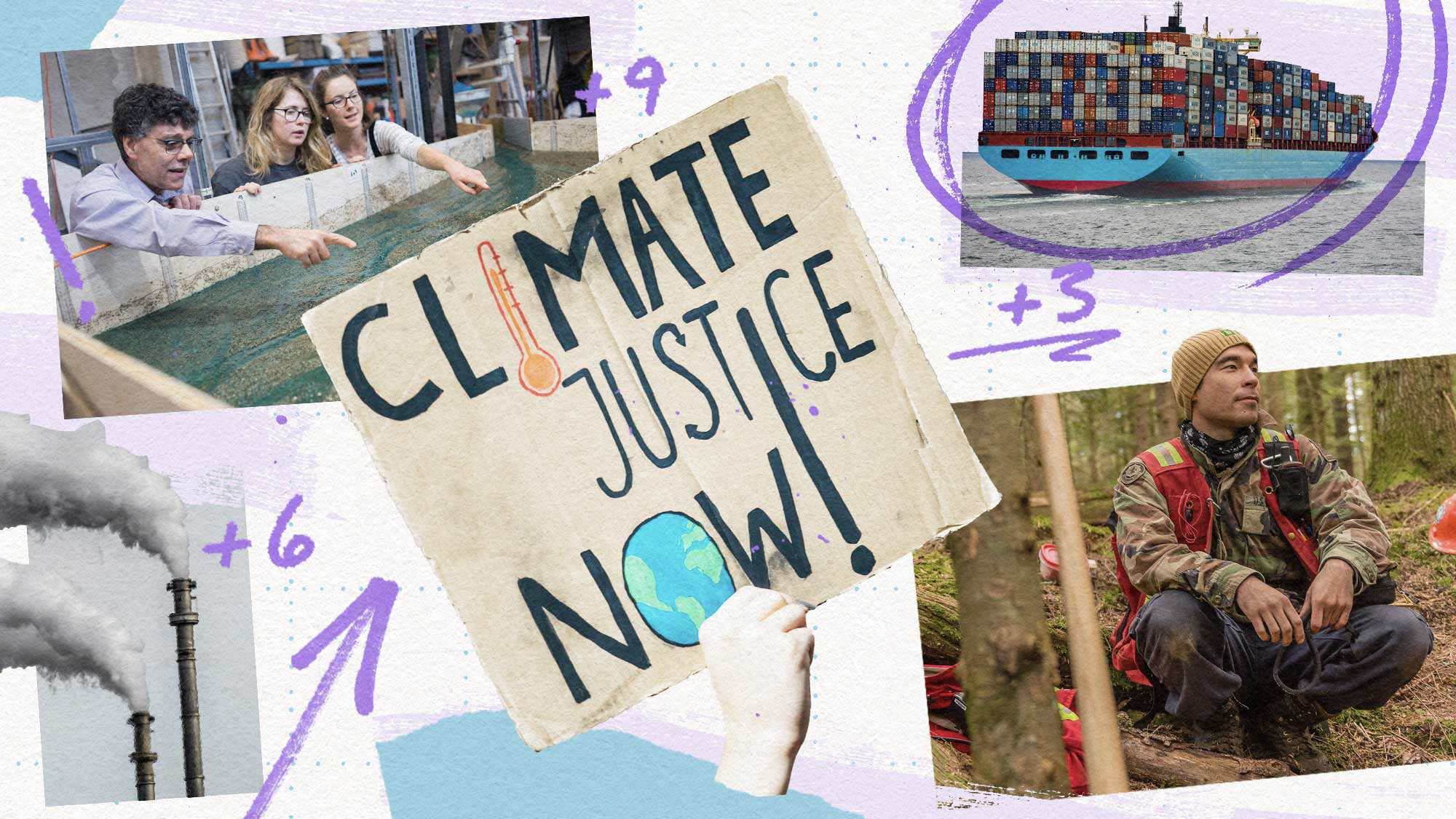By Madeleine de Trenqualye
How do we incentivize people to adopt the policies and behaviours urgently required to tackle climate change?
Canada is warming at twice the global rate, according to a new report issued by federal scientists earlier this year. That finding follows on the heels of a landmark UN report issued last fall, which warned that humanity has just 12 years to avoid the consequences of catastrophic climate change, from wildfires, rising sea levels, and food shortages.
Science tells us what the impacts of global warming will be. But social scientists — including political scientists, psychologists, economists and geographers — play an essential role in implementing solutions: in researching how our economic policies should be overhauled, how the climate crisis can be made comprehensible to the public, and how to incentivize society to adopt new behaviours.
We look at how four UBC Arts researchers are using insights from behavioural psychology, comparative policy, and environmental economics to advance climate change solutions.
The Human Cost of Climate Change
Patrick Baylis, Economist
How will the economy and society adapt to a warmer, more variable world? How should governments put a price on the true cost of pollution and assign a value to natural resources like forests and biodiversity? These are questions driving Patrick Baylis’ work.
The Politics of Putting a Price on Pollution
Kathryn Harrison, Political Scientist
Why is carbon pricing politically contentious in some places, but not others? An expert on comparative environmental policy, Harrison studies what policies and political conditions are most effective in addressing climate change.
How to Reduce Your Carbon Footprint
Seth Wynes, Geographer
What individual lifestyle choices have the highest impact on climate change? What might nudge people from knowledge about climate change mitigation to pro-environmental actions? Seth Wynes proposes a new roadmap.
The Psychology of Climate Action
Jiaying Zhao, Psychologist
Why does climate change remain such a polarizing topic? And what interventions could be made in our cities to encourage pro‑environmental behaviour? Psychologist Jiaying Zhao uses insights from behavioural psychology to address these kinds of sustainability problems.








